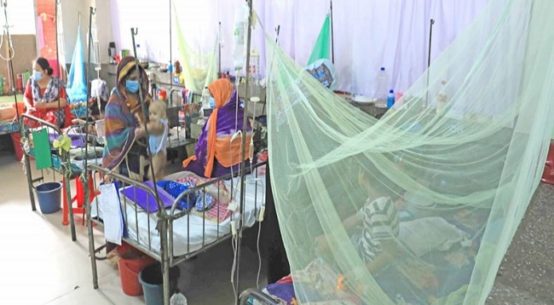
Some 123 members of the World Trade Organization (WTO) have agreed to move ahead with a plurilateral agreement on investment facilitation, but Bangladesh right now is not joining the move.
Some other countries have also vehemently opposed the move.
Day before the formal inauguration of the 13th Ministerial Conference (MC13) of the WTO in Abu Dhabi, United Arab Emirates (UAE) on Monday, the ministers representing 123 WTO members issued a Joint Ministerial Declaration marking the finalisation of the Investment Facilitation for Development (IFD) Agreement.
Tapan Kanti Ghosh, senior secretary of the commerce ministry and also a top member of Bangladesh delegation participating the WTO MC13 being held in UAE, told BSS that there is no such possibility to join the move right now as the country in principle upholds the spirit of the multilateralism.
“We’re observing the development, but there is no plan to join any plurialteral agreement,” he said. “We’re also not in a position to support the said deal. As the LDC group in WTO has a common position in this regard, we may be cornered by taking any such stance.”
The ministers representing 123 WTO members, issued a submission requesting the MC13 to incorporate the IFD Agreement as a plurilateral agreement into Annex-4 of the Marrakesh Agreement Establishing the WTO. Being a plurilateral agreement, which is binding only for the members accepting it, other may also join anytime at the deal.
Developing countries like India and South Africa are against any such deal on the plea that investment facilitation is a non-trade matter and the multilateral trade body should not be involved in it.
India also argued that the agreement may compromise the autonomy to take domestic investment-related decisions without the obligations imposed by international commitments.
Though South Korea and Chile are the formal co-ordinators of the IFD deal, it is widely backed by China. The deal, however, requires endorsement of all the 164 member countries of the WTO to be incorporated as a formal plurilateral agreement.
Under a plurilateral agreement, participating countries may new rules and secure mutual liberalisation of tariffs and those sometime go beyond the multilateral arrangement under the WTO.
Many international civil society groups also oppose the deal terming it an ‘illegitimate’ and ‘anti-development.’
“Not only is there no mandate for these negotiations, there is a negative mandate. Countries who are trying to push this through at the MC13 are breaching fundamental WTO rules”, says Deborah James, facilitator of the Our World is Not for Sale network, at a press statement.

